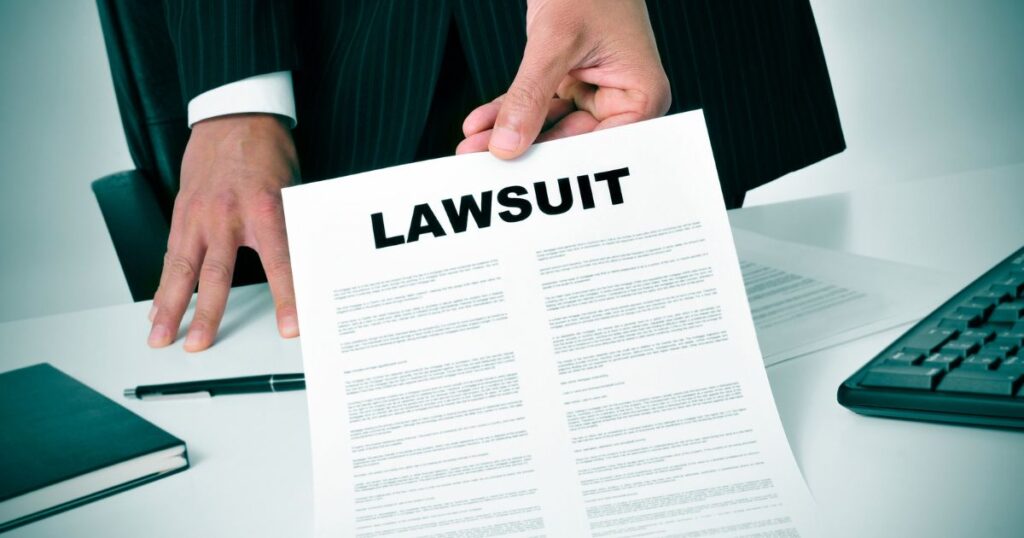The Streamate lawsuit refers to ongoing legal disputes involving Streamate, a prominent adult entertainment platform, accused of various violations such as copyright infringement and contract breaches. These cases have sparked significant legal and industry-wide implications, making them crucial to understand for anyone involved in digital content creation.
Why It Matters: Staying informed about the Streamate lawsuit is essential as it could set precedents affecting the entire adult entertainment industry. Discover what this means for content creators and platforms alike.
What Is Streamate Lawsuit?
The Streamate lawsuit refers to a series of legal battles involving Streamate, a leading adult entertainment platform. These lawsuits often revolve around claims of copyright infringement, breach of contract, and other legal violations related to the distribution and monetization of adult content. The legal challenges have brought significant attention to the practices and policies of platforms like Streamate, particularly concerning the rights of content creators and users.
How This Lawsuit Started
The Streamate began when several content creators accused the platform of violating their intellectual property rights. These creators alleged that Streamate used their content without proper authorization or compensation. The conflict initially surfaced through complaints about unauthorized distribution and misuse of copyrighted material.

Frustration grew as these creators found their work being exploited on Streamate without adequate protection or acknowledgment.The legal dispute quickly gained attention as it pointed to broader concerns within the adult entertainment industry regarding the handling of digital content and creator rights.
The lawsuit has since expanded, encompassing various claims and affecting how similar platforms manage their content and relationships with creators. This case has become a significant example of the challenges faced by digital platforms in balancing user-generated content with legal compliance.
Detailed Analysis of the Streamate Lawsuit
The Streamate lawsuit centers on several key legal issues that have brought the platform into the spotlight. Here’s a breakdown:
The Core Legal Issues in the Streamate Lawsuit
- Copyright Infringement: Claims that Streamate used content without proper permissions.
- Breach of Contract: Allegations that Streamate did not honor agreements with content creators.
- Privacy Concerns: Issues related to the protection of user and creator information.
The Plaintiffs and Defendants
- Plaintiffs: Primarily content creators who argue their rights were violated.
- Defendants: Streamate and its parent companies, accused of mishandling contracts and content.
Timeline of Legal Proceedings
- Initial Complaints: The lawsuit began with creators raising concerns in early 2020.
- Formal Lawsuit Filed: Legal action was officially taken in mid-2020.
- Court Rulings: Several hearings have taken place, with ongoing legal battles expected to continue.
This lawsuit highlights significant challenges in the digital content industry, particularly for platforms managing user-generated content.
Also Read : landlord negligence
Impact of the Streamate Lawsuit on the Industry
The Streamate lawsuit has had a significant impact on the adult entertainment industry, influencing both legal standards and business practices. Here’s how:
Legal Precedents Set by the Streamate Lawsuit
- Stricter Content Management: Platforms are now more cautious in handling content to avoid copyright issues.
- Enhanced User Agreements: Companies are updating contracts to be clearer and more protective of both parties.
- Increased Privacy Protections: There is greater emphasis on safeguarding user and creator data.
Financial and Reputational Consequences
- Loss of Revenue: Streamate has faced financial setbacks due to legal fees and decreased user trust.
- Damaged Reputation: The lawsuit has hurt Streamate’s public image, leading to a decline in user engagement.
- Industry-Wide Caution: Other platforms are taking note, implementing changes to avoid similar legal troubles.
The lawsuit serves as a warning for digital content platforms, pushing the industry towards more responsible and transparent practices.
Responses and Reactions
The Streamate lawsuit has elicited varied responses from different stakeholders.
Streamate’s Legal Defense: Streamate has maintained that they followed legal protocols, arguing that any issues were due to misunderstandings or third-party actions.
Industry Reactions: Competitors and industry insiders have responded cautiously, with some expressing concern about the broader implications for the adult entertainment sector.
Public Opinion: The general public’s reaction has been mixed, with some supporting the content creators and others viewing the lawsuit as part of the growing pains of digital platforms.
Future Implications of the Streamate Lawsuit

The Streamate lawsuit is likely to reshape the adult entertainment industry, pushing for stricter regulations and more robust content management practices. Platforms may need to adjust their business models to prioritize legal compliance and user protection, potentially leading to industry-wide shifts. This case also serves as a warning, highlighting the increased risk of similar legal challenges for other digital content platforms.
Potential Outcomes and Scenarios
Several potential outcomes could arise from the Streamate lawsuit:
- Settlement: Streamate may choose to settle with the plaintiffs, possibly resulting in compensation for the creators and changes to platform policies.
- Court Rulings: If the case goes to trial, a court ruling could set important legal precedents, either reinforcing or challenging current practices in digital content management.
- Industry Shifts: Regardless of the outcome, the lawsuit could lead to significant shifts in how platforms operate, particularly in terms of legal compliance and user agreements.
Lessons Learned from the Streamate Lawsuit
The Streamate lawsuit offers valuable lessons for digital platforms:
- Clear Contracts: Ensuring that contracts with content creators are clear, fair, and legally sound is crucial to avoiding disputes.
- Robust Content Management: Platforms must have strong systems in place to manage content, including verifying ownership and ensuring proper licensing.
- Proactive Legal Compliance: Regularly reviewing and updating policies to comply with evolving legal standards can prevent costly legal battles.
- Transparency with Users: Maintaining transparency with users and creators about policies, rights, and responsibilities can help build trust and avoid conflicts.
These lessons are not just relevant to Streamate but to any platform dealing with user-generated content, highlighting the need for a careful balance between innovation and legal responsibility.
Official Response From Streamate
Streamate has responded to the lawsuit with a strong defense, emphasizing their commitment to legal and ethical practices. The platform has argued that they have adhered to copyright laws and contractual obligations, and any issues were due to misunderstandings or third-party actions.

In their official statements, Streamate has expressed confidence in their compliance with industry standards and has highlighted their efforts to resolve disputes amicably. They have also implemented new measures to strengthen content management and user agreements in response to the allegations. Streamate’s legal team is working diligently to address the claims and mitigate any negative impacts on their business and reputation.
Potential Outcome
The potential outcomes of the Streamate lawsuit could vary widely, depending on how the case progresses. One possibility is a settlement, where Streamate and the plaintiffs agree on financial compensation and adjustments to platform policies without a trial. This could help Streamate avoid further legal costs and reputational damage while providing relief to the plaintiffs.
Another scenario is a court ruling, which could establish significant legal precedents for the adult entertainment industry. Such a ruling might either reinforce Streamate’s practices or prompt widespread changes across similar platforms. If the court finds in favor of the plaintiffs, Streamate could face substantial financial penalties and be required to overhaul their content management and user agreements.
Alternatively, if Streamate prevails, it could set a precedent that supports current industry practices and potentially discourage similar lawsuits in the future. Regardless of the outcome, the lawsuit underscores the need for digital platforms to remain vigilant in their legal compliance and content management practices.
Streamate Overview History Of Legal Matters

Streamate, a leading adult entertainment platform, has been at the center of several legal disputes since its inception. Founded in 2006, Streamate quickly became known for its user-generated content and live streaming services.
Over the years, the platform has faced various legal challenges, primarily related to copyright infringement and contract disputes with content creators. These legal issues often involve claims of unauthorized use of content and breaches of contractual agreements.
The most notable case, the ongoing lawsuit, highlights concerns over how Streamate manages intellectual property and upholds its agreements. This history of legal matters has led Streamate to implement stricter policies and enhance its content management practices to address these issues and comply with evolving legal standards.
conclusion
The Streamate lawsuit marks a pivotal moment for the adult entertainment industry, bringing to light critical issues related to copyright, content management, and legal compliance. As Streamate navigates these legal challenges, the outcome of the lawsuit could set important precedents for how digital platforms handle similar disputes. The case underscores the need for clear contracts, robust content management practices, and proactive legal strategies. Whether through a settlement or a court ruling, the resolution of this lawsuit will likely influence industry standards and practices, making it essential for other platforms to stay informed and adapt to evolving legal expectations. The lawsuit serves as a significant reminder of the complexities involved in managing digital content and the importance of maintaining transparency and legal integrity in all business operations.
People also ask :
Who is the parent company of Streamate?
Streamate is owned by Streamate Inc., a company specializing in adult entertainment and live streaming.
What is the UFC antitrust lawsuit about?
The UFC antitrust lawsuit challenges the organization’s practices related to fighter contracts, competition, and market monopolization.







